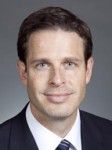 Why do I go to church? Why do I believe? Probably not for any reasons that would convince the skeptic. It’s easy to find the illogic and inconsistency in professions of faith. And a Mormon’s testimony, with its references not only to Jesus Christ as our resurrected Savior but also to golden plates and prophets in recent times, offers much that sounds incredible to the modern ear. Nevertheless I do believe, and I’ll offer a few reasons in hopes that they’ll invite interest, or at least understanding.
Why do I go to church? Why do I believe? Probably not for any reasons that would convince the skeptic. It’s easy to find the illogic and inconsistency in professions of faith. And a Mormon’s testimony, with its references not only to Jesus Christ as our resurrected Savior but also to golden plates and prophets in recent times, offers much that sounds incredible to the modern ear. Nevertheless I do believe, and I’ll offer a few reasons in hopes that they’ll invite interest, or at least understanding.
First, I believe because they believed—my parents, my grandparents, my great-grandparents going back many generations. On my father’s side, George and Harriet Humphries were baptized in England in the 1850s. They and their six children sailed from Liverpool in 1856 to join others in the ill-fated Willie handcart company. For them, the Book of Mormon was proof enough that God had once again opened the heavens. They heeded a prophet’s call to join with the saints, pulling their handcart west from Iowa. They got as far as a rocky Wyoming ridge before they were met by an early snowfall. The story of their suffering and of the dramatic rescue Brigham Young orchestrated evokes in me a deep sense of purpose and belonging. They’re my people; it’s my history. On my mother’s side were German pioneers no less faithful and brave.
Second, I believe and practice my faith because I’ve found there to be an unusually high concentration of good people in the LDS church, and I love to be around them. My fellow Mormons are sincere in their discipleship of Jesus Christ. Their faith and sincerity are contagious. We help one another through pitfalls and temper each other’s mean impulses. When we’re together I feel a confirming witness that God is behind our efforts and approves of the whole, though each of us individually falls far short of perfection. My family and I pray every day, we read from the scriptures, we serve in the church, we get up early to teach seminary and go to bed late preparing lessons, we tithe and fast as a show of our devotion. Eventually, this routine has an effect on our character. Besides learning discipline and self-control, we’ve got a healthy sense of perspective: Christ’s good news is that the trials and setbacks of life are minor threads in an eternal tapestry. Of course there are other groups that offer a similar sense of community spirit and belonging. But as much as I enjoy attending Ham radio club meetings or being around my fellow academics at the University, these could never be a substitute for church.
Finally, I believe because I find the Book of Mormon to be marvelous and difficult to explain away. I don’t think God wants to be in the business of compelling our faith, and so he never gives universal and unequivocal proof of his existence (else everyone would believe). Accordingly, signs of his existence and his concern for us seem generally to have a low signal-to-noise ratio. But every once in a while something pops well above the noise floor and either has to be dealt with or explained away as a random fluke. The Book of Mormon is one such phenomenon. Here, the fact that the beginnings of Mormonism aren’t shrouded in the mists of history is an asset to believers. The history of how the Book of Mormon came to be is well-documented and fairly coherent. Otherwise trustworthy witnesses like David Whitmer and Oliver Cowdrey made incredible claims about its origins—the same claims Joseph Smith offered. And then there is the book itself. It can be read, studied, and cross-referenced. Even sincere detractors of the LDS Church admit that the Book of Mormon, with its intricate plots and varied but coherent themes, is not easily explained away. There is a special power in the book which, even in my most skeptical moments, I can’t deny.
————————————————
Todd E. Humphreys is an assistant professor in the department of Aerospace Engineering and Engineering Mechanics at the University of Texas at Austin and Director of the UT Radionavigation Laboratory. He received a B.S. and M.S. in Electrical and Computer Engineering from Utah State University and a Ph.D. in Aerospace Engineering from Cornell University. His research interests are in estimation and filtering, GNSS technology, GNSS-based study of the ionosphere and neutral atmosphere, and GNSS security and integrity.
Todd teaches the adult Sunday school class in his local LDS ward.
Posted October 2011
